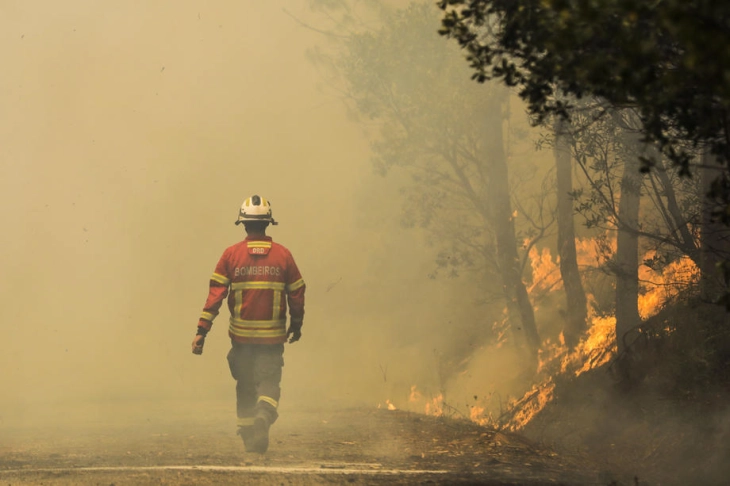WHO: Portugal, Spain log more than 1,700 excess deaths amid southern Europe heatwave
- Post By Magdalena Reed
- 19:12, 22 July, 2022

Madrid, 22 July 2022 (dpa/MIA) — Spanish media reported on Friday that the country is having the worst year for forest fires since records began, as much of southern Europe remained in the grip of a heat wave.
In the first seven months of this year, flames destroyed more than 197,000 hectares of forest, Spanish state TV reported, citing the European earth observation system Copernicus.
This is already more than in the entire previous record year 2012, when forest fires destroyed 189,376 hectares in Spain.
According to these figures, Spain is the country worst affected by forest fires so far this year among the European countries covered by the Copernicus system, ahead of Romania with just under 150,000 hectares, Portugal with some 46,000, France with just under 40,000, Croatia with about 31,000 and Italy with some 25,000 hectares.
The Italian fire brigade said on Friday it had been called out much more often for forest and bush fires so far this summer than last year.
Between June 15 and July 21, more than 32,900 operations were counted nationwide, about 4,000 more than in the same period last year, the fire brigade said. So far, firefighters intervened most frequently on the island of Sicily and in the Puglia region.
A police officer, who is also a civil defence employee, died on Thursday in the municipality of Prepotto on the Italian-Slovenian border during firefighting operations.
Deaths and injuries were reported in Europe this week as firefighters battled blazes in Greece, Portugal, France and Italy, amid dry, hot conditions.
In recent days, Italy has seen fires in the regions of Friuli-Venezia Giulia, Tuscany and South Tyrol.
Blazes also continued in Slovenia's Karst region. Three villages in the west of the country had to be evacuated again on Friday. Some 1,000 firefighters and 300 other helpers were deployed, STA news agency reported.
On the other side of the Alpine mountains, in Germany, a forest fire broke out at the top of a mountain a few kilometres from world-famous Neuschwanstein Castle, police said on Friday.
Emergency services spent the previous evening battling the blaze and were still working to extinguish embers on Friday, police said.
Much of Southern Europe remained sweltering heat on Friday, as forest fires continued to blaze in a number of spots.
For large parts of Greece, for example, meteorologists are expecting a long heatwave that will last until the beginning of August.
The mercury in Athens had already climbed to 30 degrees Celsius early on Friday morning. At the weekend and in the days thereafter, temperatures are expected to reach around 40 degrees, according to the Office of Meteorology. The civil defence force warned that the danger of fire was extremely high.
Even at night, temperatures in many places do not fall below 30 degrees, making it difficult for residents and holidaymakers to recover from the heat.
Meteorologists do not expect temperatures to drop to the normal seasonal highs of around 35 degrees for the next 10 days. The Aegean islands such as Skopelos, Mykonos, Santorini and Syros as well as the mountainous regions of the mainland have been spared from the worst of the heatwave because of sea breezes.
Hans Kluge, the World Health Organization's regional director for Europe, said on Friday that Portugal and Spain had seen more than 1,700 excess deaths this year due to the ongoing heatwave.
"Climate change is not new. Its consequences, however, are mounting season after season, year after year, with disastrous outcomes," said Kluge.
Extreme temperatures can exacerbate existing health conditions, he warned, while heatstroke and hyperthermia - or abnormally high body temperature - can also both contribute to death.







